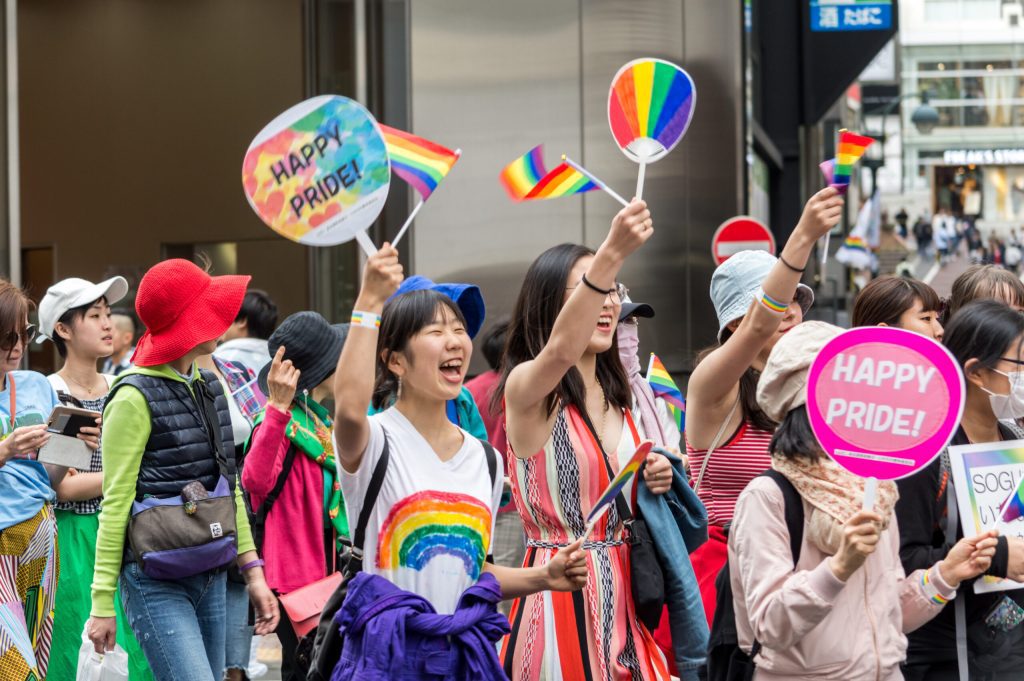Japan’s fitful march toward marriage equality took a big step forward on Thursday when a high court decided that the prohibition of same-sex marriage in the country is not allowed by the constitution.
The ruling stated that not allowing same-sex couples to get married is irrational discrimination, and that allowing same-sex marriage does not seem to have any negative effects.
The high court in Sapporo ruled that the civil code restricting marriage to opposite-sex couples is against the constitution and discriminatory. The justices suggested that the existing law should be changed to include unions beyond just between a man and a woman.
The judiciary does not have the authority to change existing civil marriage laws.
Marriage equality has caused divisions in the country’s court system with conflicting rulings over the years, while the conservative government in Japan has not caught up with the increasingly supportive public opinion. Although 70% of the Japanese population supports marriage equality, the ruling Liberal Democratic Party, led by Prime Minister Fumio Kishida, is against it. public The Prime Minister's conservative government expressed caution in response to the ruling.
Japan is the only one of the Group of Seven industrialized nations that does not provide legal protections for same-sex unions.
A plaintiff, Eri Nakaya, described the ruling as a long-awaited and delightful decision, emphasizing that same-sex couples have the same rights as others and deserve to live in the country. Reuters Prime Minister Kishida's conservative government reacted with caution.
The Chief Cabinet Secretary Yoshimasa Hayashi said that the introduction of same-sex marriage closely affects the family values of the people, and the government will continue to monitor public opinion, parliamentary debate, and other pending court cases.
Later that day, a Tokyo district court also concluded that the absence of civil rules allowing for same-sex unions constitutes a state of unconstitutionality.
Masakazu Yanagisawa, a board member for Marriage for All Japan and a senior executive at Goldman Sachs in Tokyo, expressed concern that Japan's slow progress on marriage equality might harm the country's economic position.
Yanagisawa stated that there is a growing risk of Japan being left behind by international trends and excluded as a place to work, and emphasized the need for Japan to become a society that welcomes diversity.
The U.S. ambassador to Japan, Rahm Emanuel, commended the progress made by the country's judiciary in advancing Japan.
Emanuel celebrated the Tokyo court's decision as a step towards marriage equality in Japan, recognizing the Sapporo, Nagoya, and Fukuoka courts for advocating for a more inclusive Japan.
One of the plaintiffs described the ruling as a delightful decision that made them cry.









